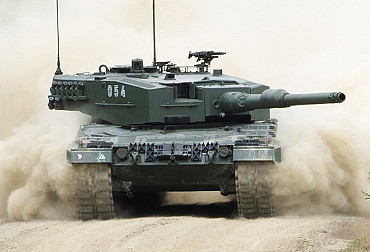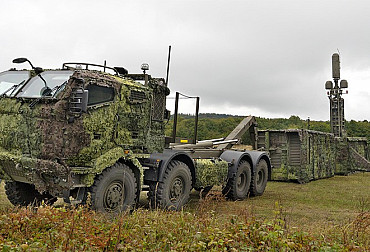DVC at the 4th Rapid Deployment Brigade or when they have a reason, students can bite just like soldiers
During the holidays, from 22 July to 14 August, the first year of the Voluntary Military Exercise (DVC) for high school students took place. A total of 127 high school students joined the 4th Rapid Deployment Brigade in Žatec and the 7th Mechanized Brigade in Hranice na Moravě, where they underwent training in small arms fire, grenade throwing, drill, tactical, topographic, and engineer training, first aid, etc. Our editorial team had the opportunity to participate in part of this exercise at the 4th Rapid Deployment Brigade, from which we have prepared the following article.
Video: Report from DVC at the 4th Rapid Deployment Brigade | CZ DEFENCE
A total of 86 students, 67 boys, and 19 girls aged 18 to 23, participated in the voluntary military exercise at the 4th Rapid Deployment Brigade. The original list of applicants for DVC at the 4th Rapid Deployment Brigade included 98 students, but 12 of them failed the initial medical examination, mainly due to poor blood or urine test results. One of the main objectives of the DVC was to introduce the younger generation to military life through a month-long basic training in 22 skills aimed at the soldier's resilience on the battlefield. These included marksmanship and tactical training, basic weapon handling, tactical movement on the battlefield, a basic survival course, basic terrain orientation, basic medical training, etc. Many of these skills and other benefits will accompany them throughout their lives, whether they decide to pursue a career as professional soldiers, join the active reserve, or simply apply these experiences to other fields. Overcoming various obstacles, pushing personal limits, realizing the power of collective cooperation—these were some of the invaluable lessons learned. The DVC participants could also see that the army is not just a group of 'green brains'; it has clear objectives and knows why they are important. The success of the exercise is underscored by the fact that, according to initial feedback, almost half of the DVC graduates expressed interest in continuing with the army, either by enlisting, joining the active reserve, or studying at the University of Defence. One of the advantages of the DVC was that students experienced the military regime on a trial basis and without obligation, with the option to leave at any time. This was advantageous for them and for the army, as releasing a soldier from service can be financially demanding. Our guide throughout the visit was Chief Warrant Officer of the 4th Rapid Deployment Brigade, Master Warrant Officer Michal Baka, who was in daily contact with the trainees and even participated in some of the exercises with them.
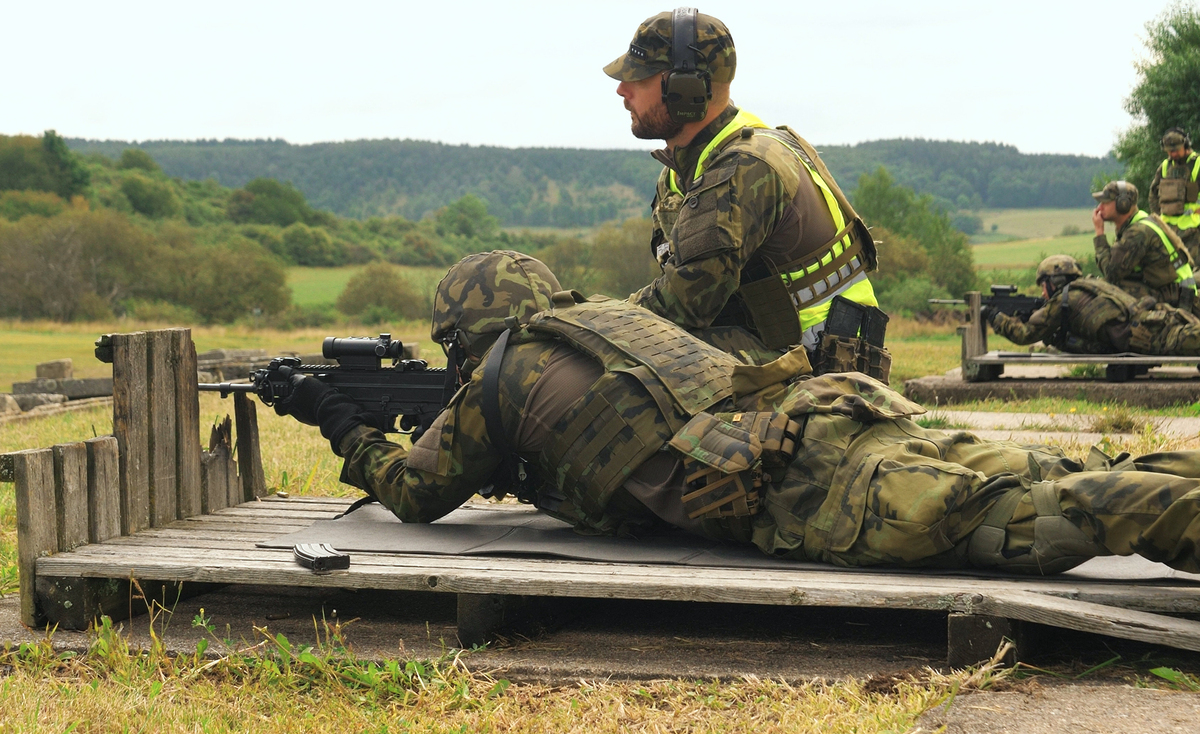
We were initially interested in how the organizational structure of the drill instructors was handled within the DVC. "We had two training platoons, each consisting of four squads. What was different from the DVC at the 7th Mechanized Brigade was that the platoon and squad leaders were selected from the ranks of the drill instructors. We took this approach primarily to build the soldiers' confidence and mutual respect more quickly. We also didn’t want to rely solely on authoritative leadership, as it doesn’t always yield the best results. On the other hand, the trainees appreciated the opportunity to experience working with peers during the DVC. This command structure was planned from the beginning of our DVC preparation, after brainstorming and setting guidelines with Brigade Commander General Líbal and Deputy Commander Colonel Hajduch. Today, we all know it was the right decision because it’s more natural for people to command among themselves rather than receiving strict orders from above," explains Master Warrant Officer Michal Baka.
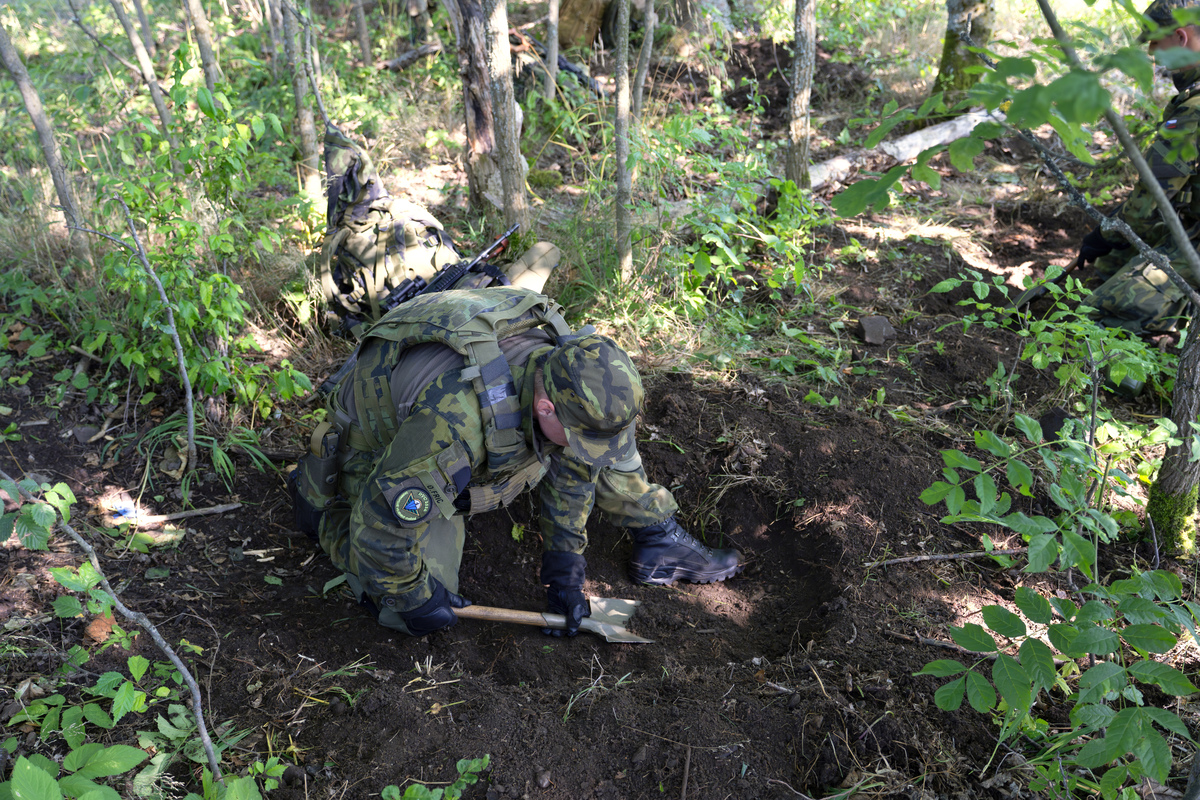
"Out of a total of 86 trainees, we formed three core groups during the DVC. The first group consisted of people from military families, with whom there were basically no problems because they were used to the regime. The second group, the largest, consisted of those who wanted to try what it takes to be a soldier. Here, we encountered situations where, for example, someone managed to lose their helmet at 20 meters, and we had to tell them, 'Go back, where’s your helmet? We need to find your helmet. Why did you lose your helmet?' It required a lot of explaining, which we’re not normally used to," continues Master Warrant Officer Baka, who adds that a soldier is responsible for their gear and must address any losses with their superior and the Executive Warrant Officer. "The third group consisted of individuals who came just to give it a try. They struggled to accept the military regime, work in a team, and overcome personal challenges, and were not mentally prepared for the life of a soldier. They either learned to adapt or left the exercise. However, there’s no shame in that; they deserve respect for at least trying it out instead of criticizing the DVC from the comfort of their homes or behind the safety of social networks," adds Master Warrant Officer Baka.
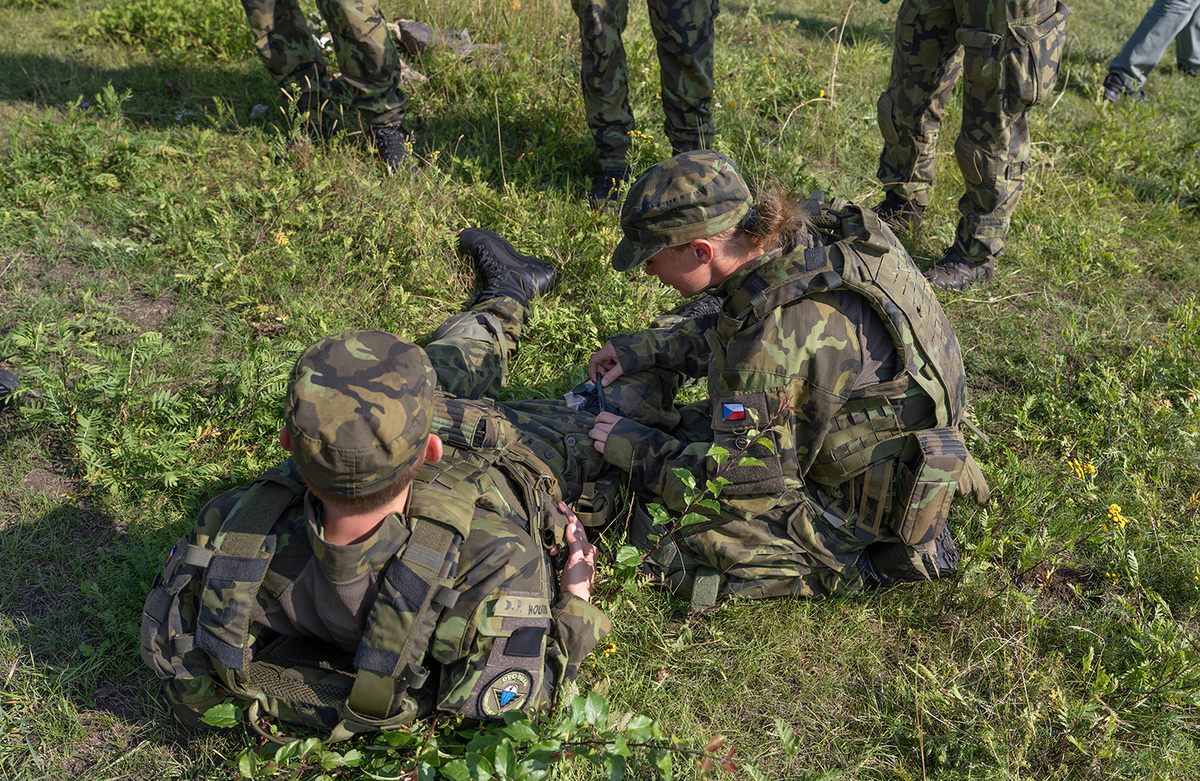
Quite a few people dropped out of the DVC at the 4th Rapid Deployment Brigade in the first few days, sixteen to be exact. According to Master Warrant Officer Baka, being a soldier simply isn’t for everyone. A large group of participants left the DVC for health or physical reasons. At the very least, they got a taste of the reality that being a soldier is not like turning on your computer and playing Call of Duty. The dropout rate was acceptable to us because we weren’t running a youth camp, but a voluntary military exercise. "The students certainly didn’t know what they were getting into; people from military families had some idea. However, the regimen of working from six in the morning until evening, with eight hours of sleep and then back to work, was very demanding for most, who had little idea of what it takes to wear the uniform. Nevertheless, they fought bravely because if you gave them a reason why, they could push through just as hard as any of us. This shows us that we, as an army, really need to adapt to the younger generation. However, we also see that when we do, the younger generation, often judged harshly by others, can be just as tough as we are. We just have to approach them differently," points out Master Warrant Officer Baka.
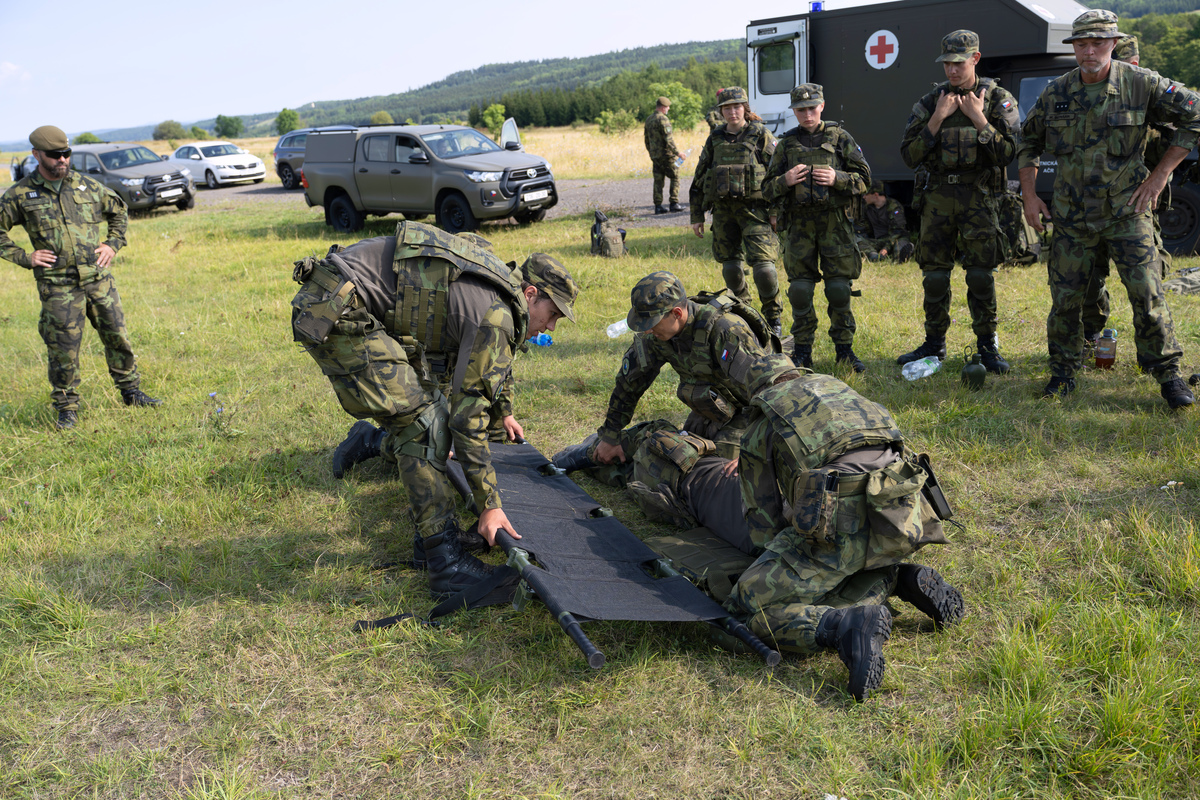
According to Master Warrant Officer Baka, the trainees really learned to overcome themselves during the DVC. Initially, they were very apprehensive, but quickly realized it wasn’t as bad as they thought. On the contrary, it was good because it built their self-confidence, which was clearly visible during the exercise. "They managed to throw hand grenades, they managed to shoot rifles, and they did it very well. The shooting results of the vast majority of them were excellent, considering they had only held a rifle or pistol for 14 days, and they started to feel more confident," says Baka.
We wondered what was the most challenging aspect for the DVC trainees. The Master Warrant Officer responded immediately, "How quickly they could fall into cliques as part of the shared accommodation. We housed eight to ten people in a room for six months straight, and we didn’t have any issues, but they could start arguing after ten or twelve days. On the other hand, you have to admit that it’s a huge invasion of their privacy because, for the first time in their lives, their only personal space was basically a bed, a bunk bed at that. Another challenge was for the students to learn that helping the weaker ones, for example, those who were not keeping up, is better than being angry with them. We tried to instill a sense of team spirit. We also ensured that if needed, the trainees could speak with an Army psychologist or chaplain about their concerns at any time. They also assisted the instructors in dealing with certain situations that arose."
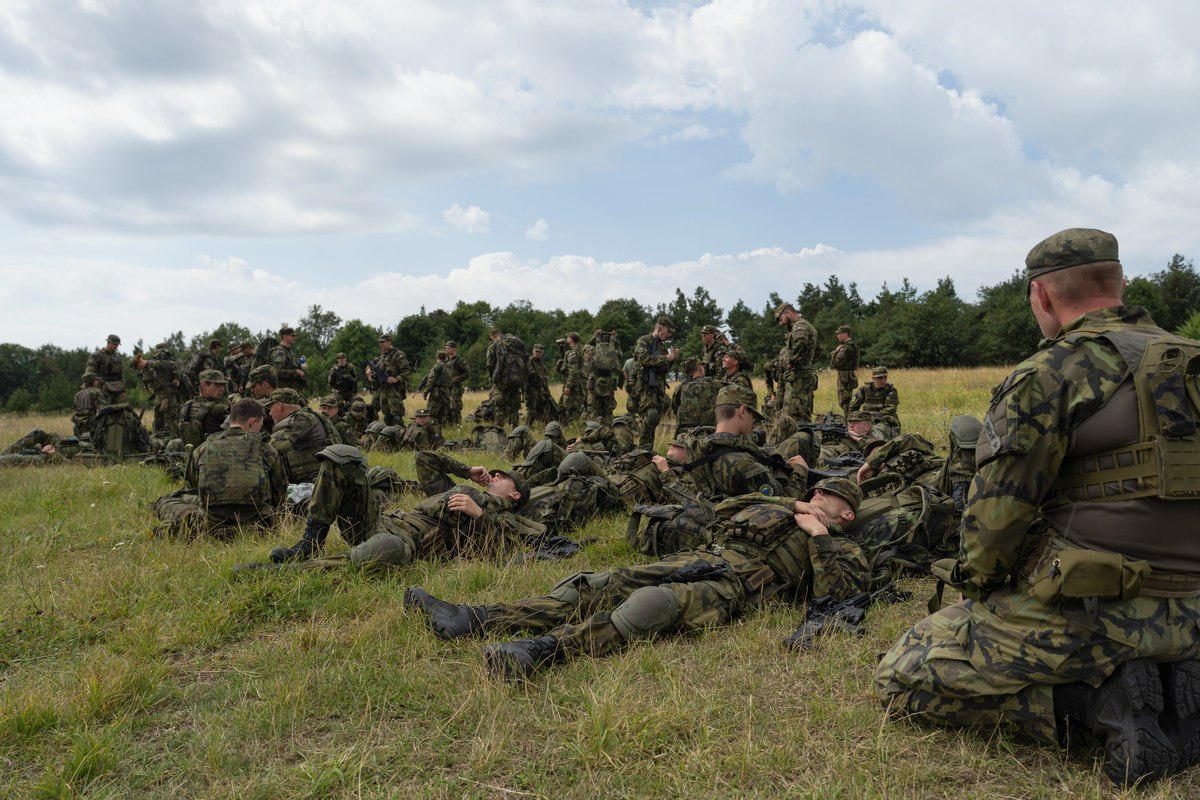
We also asked what challenge the DVC presented to instructors who had not yet encountered similar training. "It was a new challenge that we had to tackle because, for us, for our instructors conducting the training, it was the first time we had ever encountered such a reality check. My main role at DVC was to smooth over any friction points that might arise in our approach to the trainees, ensuring we understood that we couldn’t just 'slaughter' these people, if I can put it that way. It was a matter of adjusting to the fact that we were working with people who were not soldiers, but high school students. Some things that are common in the military environment just couldn’t be applied here," says Master Warrant Officer Baka, who further reveals that compared to soldiers, high school students reacted completely differently, behaved differently, and acted differently.
During the voluntary military exercise, the students had to work every day from six in the morning until ten in the evening. For many, it was quite demanding and in the evening they went straight to bed and slept However, some took advantage of the free time and the possibility of using a mobile phone, which was otherwise strictly forbidden during the whole exercise, to contact their family, etc. The next and most used form of contact between the high school students and their families was the classic correspondence The soldiers also received a lot of "motivational" packages from their parents with various goodies. For contact with the outside world, especially with the family, a whatsapp group was also set up, where instructors regularly uploaded various information and photos from the ongoing DVC, so that parents had an almost daily overview of what their children were doing In addition, information from the training was also regularly posted on the Facebook profile of the 4th Rapid Deployment Brigade.
Of course, the instructors did a great job during the DVC and we were interested to know how many of them were replaced during the exercise. "We rotated the instructors every week, so there were three rotations of 24 instructors in total," revealed the Master Warrant Officer of the 4th Rapid Deployment Brigade He also told us that throughout the course of the DVC, every day there were reports to Brigadier General Líbal at the 4th Rapid Deployment Brigade headquarters about what had happened that day, how many people had dropped out or what problems were being solved In addition, the deputy commander of the 4th Rapid Deployment Brigade, Colonel Martin Hajduch, was physically present every day of the voluntary exercise and completed some items with the soldiers, such as the five-kilometre march with a 25-kilogram load, which we also completed as part of our visit.
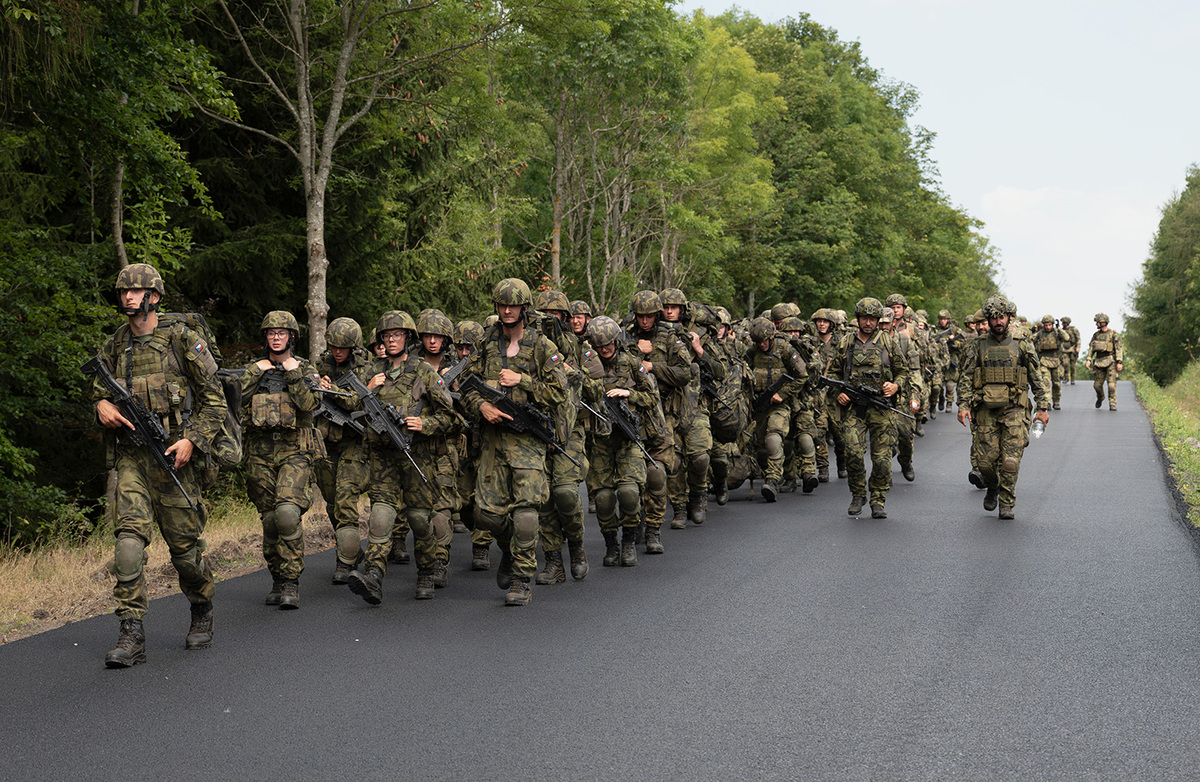
We then asked Colonel Hajduch how he assesses the whole project of voluntary military exercises from the point of view of the army. "For me, it was a great idea that will meet the expectations of the army and will be conducted in larger numbers in the future. When we visited each selected high school with the offer to participate in the voluntary military exercise, we were met with huge interest. In the end, we were only offering a limited number of places, we simply couldn't take any more. I think the students were mostly excited about the exercise. I went through some of the activities directly with the drill servicemen to get input on how they liked it and what we could possibly change for the next one. We got information from this zero year that we will then evaluate and adjust the next year's exercise accordingly. For example, I asked students about joining DVC, if everything was easy for them to understand, if it was easy for them to apply and communicate with us. I also asked about whether they were comfortable with the list of material we provided. I see recruiting potential in the DVC for the professional army or the active reserves, but at least they are all trained in some way, can take care of themselves a little better now and have gained a positive view of the army," said Col. Hajduch. He also praised the overall physical condition of the students, which he said was not bad at all.
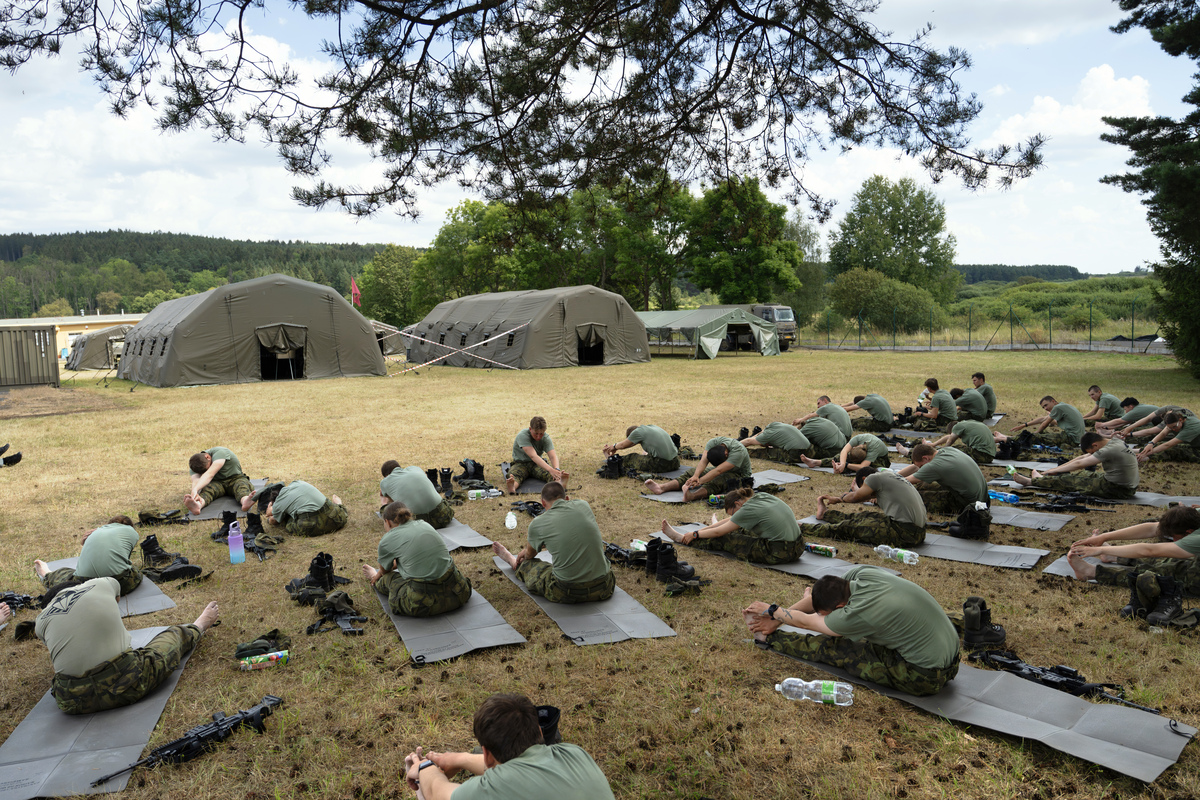
We wondered if the instructors strictly followed the original DVC plan or if the program was modified a bit during the training depending on the abilities of the trainees or external influences. "We definitely stuck to the original plan because the DVC had a clear schedule that we had to follow. But it is true that we adapted the training to the climatic conditions, for example. Whether it was the storm that came through or the hot days with temperatures over thirty-five degrees. Our intention was not really to 'cook' the trainees. We also took more breaks than the original schedule, for example, or switched morning jobs so that students weren't running or doing more physically demanding things during the day in the heat," Michal Baka explained some of the DVC's adjustments.
For a number of drill sergeants who are not normally used to increased physical activity, the training was challenging. We asked how medical security was provided at DVC and what the most common injuries were. "Medical security at DVC was 24/7, without it we couldn't have done it. There was a permanent conventional ambulance, a medic, just everything as mandated by the army legislation. The most common injuries were sprained ankles, knees or fatigue things. After all, wearing a vest and helmet all day long when your body is not used to it is physically demanding on your muscles," says Master Warrant Officer Baka.
Those who successfully completed the voluntary military exercise were awaited by a ceremonial swearing-in ceremony attended by the highest representatives of the Ministry of Defence and the Army of the Czech Republic, which in itself was a very emotional and unrepeatable experience for the students.
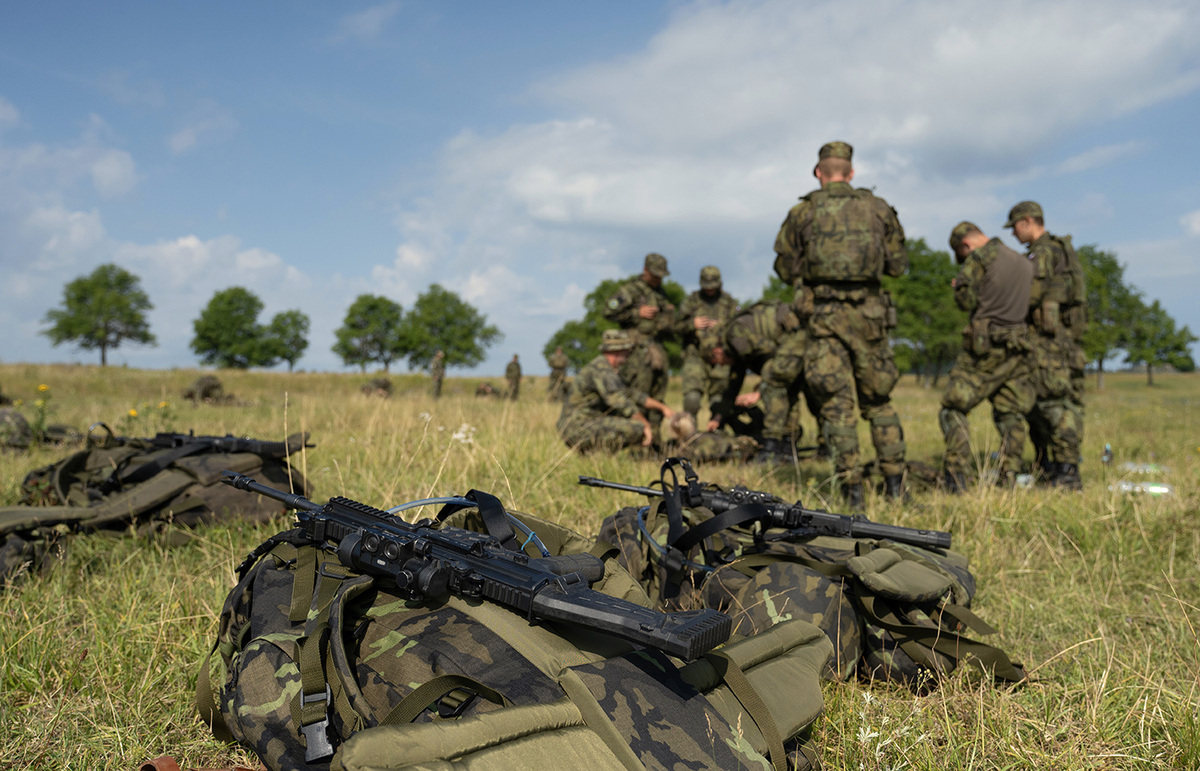
| Michal Pivoňka / CZ DEFENCE
It is already very likely that other voluntary military exercises for high school students will be held in the future, and probably also at other army units, as this year's zero year has so far received a positive response from DVC graduates and representatives of the Czech Armed Forces.















